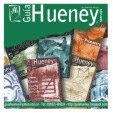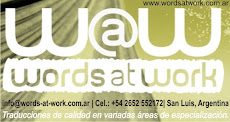The end of Light bulbs
The National Act No. 26473, which prohibits importing and selling incandescent light bulbs is gradually moving forward throughout the entire country. This Act is expected to come into force as from January 1st, 2011.
Argentineans will have to replace incandescent light bulbs with compact fluorescent lamps (CFL), which are promoted as better light producers, since they are believed to save energy, which may result in a more efficient home economy and in the country’s possibility to overcome the serious energy crisis we are going through.
The use of compact fluorescent lamps has been promoted by the media since 2008 as an “energy-saving idea”. Low energy lamps are said to have a longer duration – an average of 6,000 hours, or in other words, 6 times more than incandescent bulbs.
As a way to propel the campaign to replace incandescent light bulbs, and in agreement with the Act unanimously passed by the members of the Congress, about 5 million of compact fluorescent lamps were distributed across the country free of charge. In our province, the distribution of the 114 thousand lamps sent by the national government was in charge of the local electric energy company, EDESAL, and the municipal offices.
While this campaign is carried out, and everyone replaces incandescent bulbs with CF lamps, no information has been given to citizens regarding the dangers of having incandescent lamps at home (they have a high content of mercury, a hazardous metal). No campaigns to inform about how to manipulate them has been made, and no regulations for their final disposal have been discussed.
Once the Act was passed, the Instituto Nacional de Tecnología Industrial - INTI (Nacional Institute of Tecnology) showed that many of these lamps have a shorter life span and are less efficient than what is indicated by the manufacturers. The INTI also declared that “if the lamp explodes, mercury goes out into the air, which causes a wide range of systemic effects on humans’ health, affecting kidneys, liver, stomach, intestines, lungs and the nervous system. Microorganisms convert inorganic mercury into methyl-mercury, a very toxic, persistent and bioaccumulative form of mercury which is easily absorbed by the gastrointestinal tract”. Other reports inform that mercury – if the lamp explodes - sticks to any type of textile fibers, including carpets, curtains, linen, etc, which may give off mercury fumes for a long time. Similarly, it has been proved that these lamps can damage the skin, since they emit UV rays, which may also cause vision disturbances and headaches.
A policy worth imitating is, for example, the one adopted by the European Community, which allowed saving 20% of energy on the one hand, and generating an additional 20% of energy, on the other, by using renewable sources. People in Brussels (Belgium) is provided with information on how to save energy by the electric energy company itself, and they also have access to soft loans to buy double glass windows, which make heating systems more efficient in winter.
Most toilets in Europe have two flush buttons, one for solid waste (which allows a full flush of the cistern), and the other for liquid waste (which allows half the flush of the cistern). This system for saving water is based on the fact that producing tap water consumes a lot of energy. In Colorado (USA), energy is produced through solar panels.
Unfortunately, the legal framework in 


